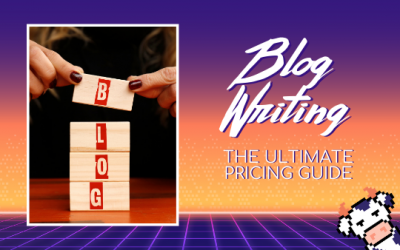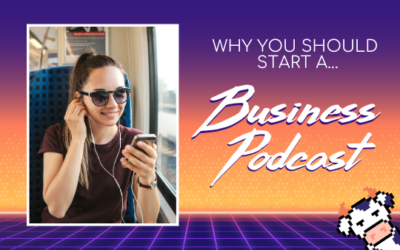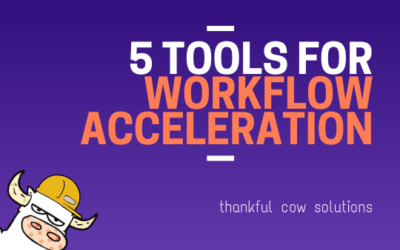So you want to start a podcast?
Congratulations! Deciding to start a podcast is an awesome step to talk about your passions. But I know all too well…
To hit “publish” on your very first podcast is both exciting and a bit scary!
You’re putting your voice out there for anyone in the world to consume. Will they like you? Love you? Hate you? Troll you?
Time will tell.
But you have all the congratulations from me for taking that first step! I know I was nervous as heck when we released the first episode of Geek Herring (and I know Thom was the same releasing his first episode of his show, Three Extra Lives), but I’m so glad that we did start a podcast!
We’ve had so much positive feedback from our listeners made up of family, friends, and strangers from around the world.
This week marks our 25th episode. That’s 6 months of releasing podcasts every single week. Half a year of people hearing our voice shout about the geek feminist issues that impact us.
Wow!
And while I, for one, am really pleased with how the first 25 episodes have gone (seriously they couldn’t be better!), I have learned some important lessons I’d love to share with you.
Consistency, Consistency, Consistency
It probably makes me sound like a broken record, since I’m always talking about this, but just like your social media posting – you should be releasing your podcast episodes at a regular interval.
What interval?
It doesn’t actually matter – so long as it’s one that you can stick to.
That means you could release a show daily, weekly, fortnightly, or monthly, literally whatever works for you… but if you stick to a regular release schedule, your listeners will get used to it and, even better, expect your episodes to come out on that day.
We release an episode every single Friday (except one when we didn’t stick to our schedule – see the next point). It might not be the most popular podcast release day, those are Monday, Tuesday, and Wednesday, but it works for us.
So once you’ve got your release schedule set out, next is setting your recording and editing one.
Set and Stick to a Schedule
When we first started Geek Herring, we were recording every chance we got. This was definitely a good thing, at the beginning, because it let us build up a bit of a backlog of episodes we could pull out if we didn’t get a chance to record one week.
At the start, this was working fine.
But eventually, we found that we were scrambling to get the episodes out on time! There were weeks we were editing shows late into the night the day before release day.
It was starting to get really stressful, and that’s just not what a podcast should be about. Or why we decided to start a podcast.
So we sat down and agreed a set schedule.
This means that we record at the same time every single week. And if one of us can’t make it, the show still goes ahead, whether solo or a quick guest invite.
It also means that all our editing, social media images, and scheduling is done by mid-week to allow for our Friday release time.
Setting this strict schedule has been extremely beneficial for us
Audio Edits to Save Time
Editing your episode can be an incredibly long process, but I’m gonna break down some of the techie audio stuff to make it easier for you to start a podcast.
Not only are there intros, outtros, sounders, and maybe even music tracks to get added, you need to consider quite a few other aspects: reducing silences, volume levels, background noise, and whether you want to delete those ums and ahs or not.
Over the past 25 episodes, we’ve discovered some audio effects that have helped drastically reduce our editing time.
First off, there’s a programme called Levelator which you upload your .wav raw audio in and it evens out the volume level of your track automatically. It’s awesome.
Our preferred editing software is Audacity, so all of these effects are found there, though they’re also likely found on most other software!
The next thing we do is use “Truncate Silence” on the entire track to get rid of the unbelievable amount of times we stop talking to think about the next super smart thing we’re going to say.
In fact, the truncate silence effect has had the single biggest impact on our editing. Do you know how long it takes to manually remove every single silence? A LONG time. Trust me on this one.
Make truncate silence your one true love.
Lastly, we like to use the “Noise Reduction” effect. This lets you pick a sample audio level, usually a sniff or a quiet cough, and take everything that quiet than that directly out of your episode. This effect is especially helpful when you’re not using a pop filter.
Can an Episode be Bad?
It’s important to remember that even if you record an episode that YOU think is not up to your usual standard, there’s a good chance your listeners are still going to like it. Plus, you’re probably going to be the only one who really notices it’s not up to scratch.
So no, an episode can’t be bad.
Even if you feel like you have nothing to talk about. Or if you only put out something that’s half the length of your normal ones. Not even if you stumble over your words time and time again and feel like you’re editing for a millenia.
Still worried about those “bad” episodes that “flop”?
Go back to why you decided to start a podcast.
Remember: It’s All About Having Fun!
You’ve started your niche podcast because you love the topic you’re talking about, right? You love it so much that you want to share your passion with the world through audio.
And I bet you originally started recording episodes because it was FUN, right?
Right.
When you turn your niche podcast into a chore, dread recording, editing, or promoting, and are literally just obsessed with stats – I think you need to reevaluate why you’re doing this!
I was (am) a bit of a download stats addict and I noticed that one of our show types doesn’t get a lot of downloads, so I mentioned cutting it.
But was reminded that this is actually my favourite episode format, my co-host’s, and several of our listener’s favourites, too.
So why should we cut it just because it doesn’t have the downloads?
Exactly, we shouldn’t.
I enjoy researching and recording the episode, I have fun doing it, and learn loads! And that’s what really matters.
First and foremost, you’re recording your podcast for YOU and your enjoyment, your audience is secondary.
So enjoy it.
Amanda Sloan is a Content and Copywriter at Thankful Cow Solutions and host of Geek Herring. She’s a lover of geek feminism, podcasting, gaming, food, and wellness. You’ll find her talking and writing about feminist discourse, all things geeky, vegan food and nutrition, podcasting, travel, and positive mindset.
Call The Cow to find out how we can help YOU move forward with virtual assistance, content, or copywriting. 🐮



0 Comments